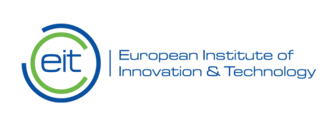A vision of the future: presenting EIT Manufacturing and EIT Urban Mobility

The European Institute of Innovation and Technology (EIT) today officially presented its two newest Innovation Communities: EIT Manufacturing and EIT Urban Mobility. Together with some of their leading partners TomTom, COMAU, Siemens, CEA, Czech Technical University Prague, Technical University of Vienna, and the City of Barcelona, they offered a glimpse of what society could look like in 15 years.
Brussels – 24 January 2019 – A society with a sustainable, resource-efficient, digital and above all competitive manufacturing industry. One that contributes to a circular economy and allows for growth, with different types of job opportunities for a diverse, highly qualified workforce. Where logistics and traffic are smart-managed. Where people use highly efficient modes of electric, shared or individualised and on-demand (public) transport. Where cities provide more space for living, walking and playing. Where no one worries about air quality, traffic jams or finding a parking spot.
Is this what Europe will look like in 15 years? One thing is for sure; impact like this is precisely what the EIT aims for.
Gioia Ghezzi, Member of the EIT Governing Board, said: ‘I’m thrilled to be presenting our two new Innovation Communities that will find solutions to these crucial global challenges and will effectively contribute to the industrial revolution needed to build a sustainable world. They are great examples of what the EIT strives for: stimulating tangible innovations by bringing together business, education and research with concrete impact that ultimately creates better, sustainable lives for citizens across Europe.’
70 % of Europeans live in urban areas, and urban mobility accounts for 40 % of all CO2 emissions of road transport. Congestion across the EU is often located in and around urban areas and costs nearly EUR 100 billion, or 1 % of the EU’s GDP, annually.
Maria Tsavachidis, CEO of EIT Urban Mobility, commented: ‘The current mobility model is simply not sustainable. To change it, we need solutions to a number of key challenges – decongestion, sustainable urban growth and eco-efficient transport. We need to do it now, by deploying and scaling technologies, by pushing change in regulations and infrastructure. Citizens must also be given a voice and an active role in the transformation of the urban mobility ecosystem to explore innovative solutions together. We want to reclaim the public space for what the ancient Greeks used to call the “agora” functions: living, working and meeting. This is exactly what we will achieve with EIT Urban Mobility: making our cities more liveable for citizens.’
In the EU, the manufacturing sector employs close to 30 million people in 2.1 million enterprises and accounts for close to 20% of the GDP on average. However, the manufacturing industry is under pressure from a number of factors, varying from rapid technological advancements to the need for a more circular economy.
‘If we want to create sustainable growth in the European manufacturing sector, we need to innovate and embrace industry 4.0. Such a shift requires investment and education’, says Prof. George Chryssolouris from the University of Patras, EIT Manufacturing’s key coordinating partner. ‘The EIT’s innovation model is perfect for this: by bringing together business, industry, research and education as well as the public sector, it not only acts as a catalyst for change, but also creates new investments and opportunities. There’s no other initiative like the EIT in the world.’
BACKGROUND
EIT Urban Mobility – Mobility for Liveable Urban Spaces
EIT Urban Mobility is a consortium of 48 partners from 15 countries, including the cities of Copenhagen, Eindhoven, Prague and Istanbul, Polytechnic University of Catalonia, Israel Institute of Technology, SEAT, École Polytechnique Fédérale de Lausanne, and Volkswagen Truck & Bus.
With urbanisation happening faster than expected due to migration, demographic change and economic interest, there is a real need to invest in up-to-date urban transport systems. The demand for shared, clean and on-demand transport solutions for people and freight in urban areas is also rapidly increasing as a result of many European cities setting ambitious climate targets to fulfil the goals of the Paris Agreement. EIT Urban Mobility will help ensure a greener, more inclusive, safer and smarter urban mobility system.
More information: EIT Urban Mobility
EIT Manufacturing – leading manufacturing innovation is MADE BY EUROPE
EIT Manufacturing is a consortium of 50 partners from 17 countries, including Volkswagen, Tecnalia, INESCTEC, Volvo, Aernnova, Arduino, LMS, Aerospace Valley and Spinea.
Manufacturing in European countries is under considerable strain: increased global competition, low-cost production in developing countries, and scarcity of raw materials. New market and societal needs, rapid technological advances, environmental and sustainability requirements, are also driving change in this sector. EIT Manufacturing will help the sector become more competitive, sustainable and productive.
More information: EIT Manufacturing
Next steps
To facilitate EIT Manufacturing and EIT Urban Mobility’s establishment, the EIT will provide each of the winning partnerships with a start-up grant of up to EUR 4 million to ensure they become fully operational as soon as possible. Under Horizon2020, the EIT’s current annual funding to its Innovation Communities gradually increases to reach over EUR 80 million after few years of activity – provided that they achieve the expected results. In the meantime, EIT Innovation Communities are also expected to attract significant investments from private and public sources, multiplying the investment made by the EIT and progressively replacing it to reach financial sustainability in the long-term.
What is the European Institute of Innovation and Technology (EIT)?
The EIT was created in 2008 to drive Europe’s ability to innovate. The EIT is a unique EU initiative, the only one to fully integrate business, education and research. The Institute supports the development of dynamic pan-European partnerships among leading universities, research labs and companies. These are called Innovation Communities and each focuses on a specific global challenge.











Responses